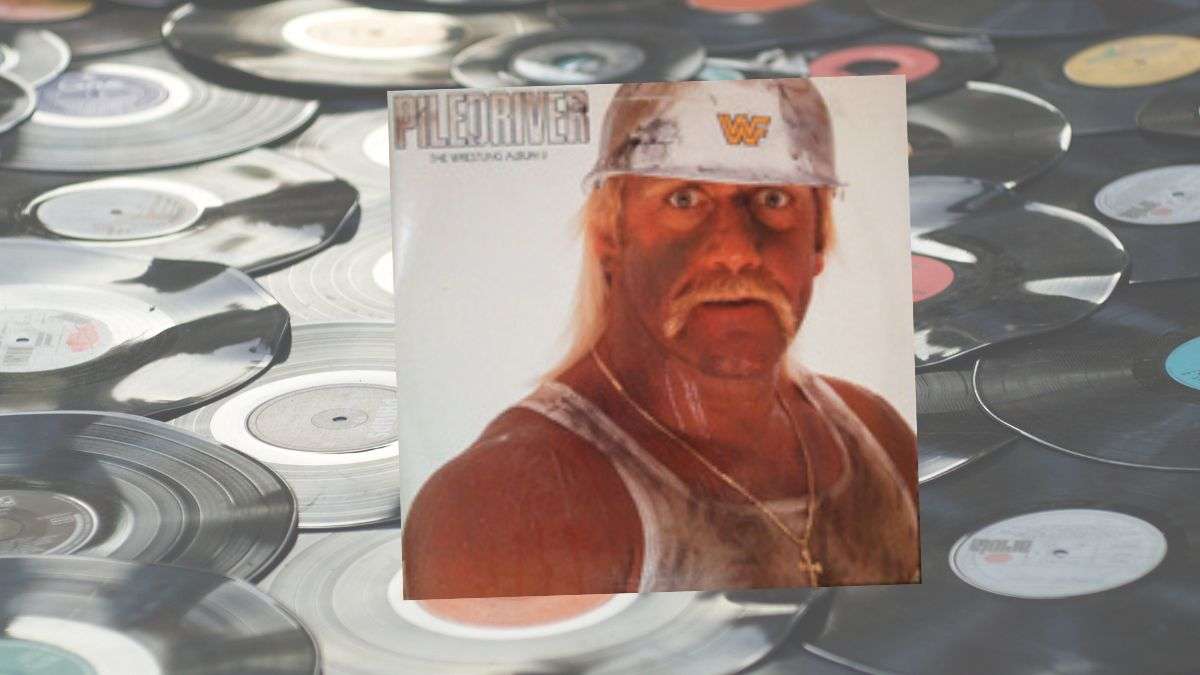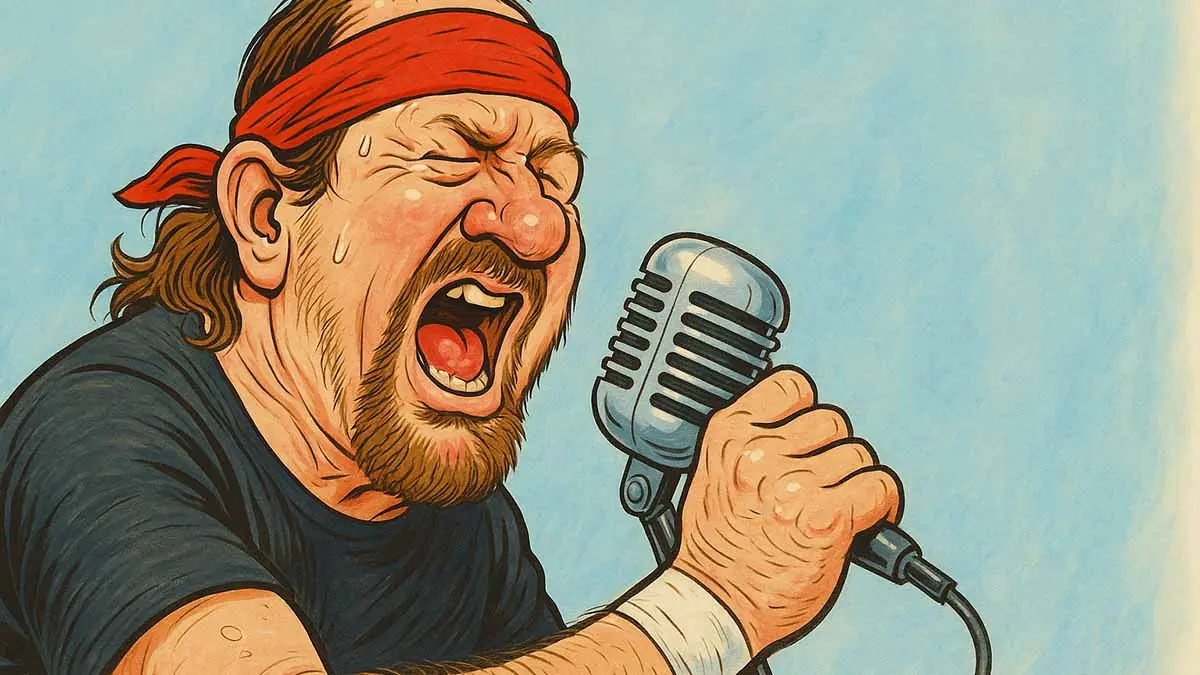I was presented with the simple question: Is Piledriver: The Wrestling Album II actually good?
Well, they learned from their mistakes. Maybe the WWF heard the mess that was 1985’s The Wrestling Album and applied the lessons for 1987’s Piledriver: Wrestling Album II release.
Now look, it isn’t the grappling version of Bat Out Of Hell, a classic album you can listen to again and again, but at least you can listen to it all the way through without stopping; I had to take a break with The Wrestling Album.
So what did they learn?
Keep It Simple – The Wrestling Album had a riot of characters on the cover and a running theme of Vince McMahon, Jesse Ventura and “Mean” Gene Okerlund exchanging stilted semi-comic chat in skits that even Impro Comedy would have junked. Here they put the icon of the late ’80s WWF, Hulk Hogan, on the cover, but only the rather surprised face and hard hat, no red and yellow — he resembles one of the Village People.
The songs ignored the comedy moments of their predecessors, no disco “Cara Mia”, no “Captain Lou Albano’s History Of Music” getting nowhere near funny.
These were songs made for the late ’80s and WWF/E songwriting legend Jim Johnston is the basis of many of them, which is why AOR and Yacht Rock legend Robbie Dupree does all the heavy lifting on “Girls In Cars”, where Strike Force’s Rick Martel and Tito Santana are there, but that’s about all; it’s a sunny AOR track with a very Neal Schon Journey solo and an interesting intention to nestle in the charts.
And as Koko B. Ware can actually sing, not just hold a tune, his soulfully powerful voice is utilized well on the M McDonald and Johnston mini-funkateer title track, with a big beat and female backing vocals adding heft and Koko crooning and soulling up the chorus.
And of course Jimmy Hart has a track, he was one of the only good things on The Wrestling Album and here his “Crank It Up” is a fairly forgettable but good-at-the-time rocker with an organ simmering away and a group of his mates attacking the chorus, ironically it just isn’t cranked up enough.
Familiarity – The WWF realized that fans would want to hear what they recognized from Superstars Of Wrestling and Saturday Night’s Main Event, so they just took the theme tunes and threw them in; after all, this is a wrestling album.
And who wouldn’t want to hear Slick slipping and sliding all over the notes to Parlafunkadelic excellence “Jive Soul Bro”? It sounds huge, with those blarting soul review horns and squelchy backing. I can just see Slick dancing in his loafers and I love it.
Elsewhere we get Rick Derringer’s rock monolith “Demolition” theme with a big solo which has rocky chops but doesn’t go anywhere and after the angle of the Honky Tonk Man not being able to sing the songs he tells us he’s putting out, Wayne Farris can actually croon a little and with big piano help and some female backing singers holding him up when he flags, this is rather a success.
Play To Your Strengths – Vince McMahon was the boss, the head honcho. And so to hear him really selling “Stand Back”, with a serviceable voice too, is akin to a CEO wearing lederhosen at a shareholder brunch. The voice is actually helped by his absolutely all-in nature, there’s no winking here he appears to want to get it right. As a nice, overly seasoned side dish, be sure to see his 1987 Slammys performance of the tune, it’s on YouTube:
Good, isn’t it? In a small-room-in-Las Vegas way.
And Ricky D is back with well-known “Rock And Roll Hootchie Koo”, a lot of us know it, we know Mean Gene and that he isn’t asked to do much is probably a collective sigh of relief, Rick is a safe pair of hands.
Have A Bit Of Weird – Hillbilly Jim and Gertrude’s “Waking Up Alone” is played straight, with swelling synths and a bereft acoustic guitar; it’s sweet and completely out of place in this big beating, artistically challenged collection.
And there you have it. There’s a rap in closer “If You Only Knew”, with its big beat, thin synths and good chart intentions, which is a good, if expected way to lead us out.
Piledriver doesn’t have some of the odd charm of The Wrestling Album, but then it doesn’t have some of the appalling choices either.
As The Lost Turntable writes, “Piledriver is actually an attempt at a ‘serious’ record – and is shockingly a far better record for it.”
More corporate? Yes, which is what WWF became as the years progressed. More enjoyable? All depends what you’re expecting…
RELATED LINKS




